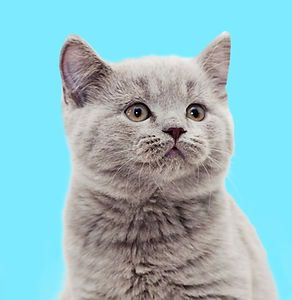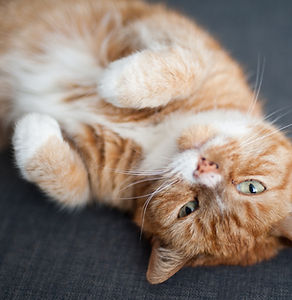
Cat Dental Care: Why It’s Essential for Your Feline’s Health
As a cat owner, you may know the importance of providing your cat with a balanced diet, regular veterinary check-ups, and plenty of playtime. However, one aspect of feline health that is often overlooked is dental care. Just like humans, cats are prone to dental issues, which, if left untreated, can lead to significant health problems. We have included information that will explore the importance of dental care for your cat, common dental issues they face, and effective ways to maintain their oral health.
1. the importance of dental care for cats
Dental health is critical to your cat’s overall well-being. Poor oral hygiene can lead to a variety of issues, including gum disease, tooth decay, and even systemic health problems. When a cat’s teeth and gums are neglected, plaque and tartar build up on the teeth, eventually leading to gingivitis and periodontitis. These conditions cause discomfort and pain, which can affect your cat’s ability to eat and overall quality of life.
Furthermore, dental disease in cats is not limited to just the mouth. Bacteria from infected teeth and gums can enter the bloodstream and affect other organs, including the heart, liver, and kidneys. In fact, studies have shown that oral disease is associated with an increased risk of systemic conditions, making dental care an essential component of your cat’s health.
2. common dental issues in cats
Cats can suffer from a range of dental problems, some of which may go unnoticed by owners. Below are a few common dental issues found in cats:
1. Periodontal Disease (Gum Disease) Periodontal disease is the most common dental issue in cats. It begins with the accumulation of plaque on the teeth, which can lead to inflammation of the gums (gingivitis). If left untreated, gingivitis progresses to periodontitis, where the infection affects the tooth roots and surrounding structures. Symptoms of periodontal disease include bad breath, red or swollen gums, and difficulty eating.
2. Tooth Resorption Tooth resorption is a painful condition in which a cat’s teeth begin to break down and dissolve. This condition can affect any tooth and is often associated with severe pain and discomfort. Cats with tooth resorption may drool excessively, have difficulty eating, or show signs of facial swelling. The exact cause of tooth resorption is not fully understood, but it is believed to be related to an immune system response.
3. Stomatitis Stomatitis is an inflammation of the mouth’s mucous membranes. It is often seen in cats with severe dental disease, and the pain caused by stomatitis can make it difficult for your cat to eat or drink. Stomatitis may be caused by an immune response to dental plaque or as a secondary issue from untreated periodontal disease.
4. Broken or Fractured Teeth Cats can suffer from broken or fractured teeth due to trauma, such as biting on hard objects or injury. A broken tooth can cause significant pain, and bacteria can enter the exposed tooth pulp, leading to infection. If you notice your cat pawing at their mouth, drooling, or having difficulty eating, a fractured tooth may be the cause.
5. Bad Breath (Halitosis) While bad breath is common in cats, it should not be ignored. Foul-smelling breath can be a sign of underlying dental issues, such as periodontal disease or tooth resorption. If your cat’s breath is consistently foul, it is important to have them examined by a veterinarian.
3. signs of dental problems in cats
Cats are known for hiding their pain, which can make it difficult to spot dental issues. However, there are several signs that may indicate your cat is suffering from dental problems:
● Bad breath or noticeable odor from the mouth
● Difficulty eating or chewing, including a reluctance to eat hard food
● Drooling or excessive salivation
● Pawing at the mouth or face
● Red, swollen, or bleeding gums
● Weight loss or changes in appetite
● Changes in behavior, such as irritability or withdrawal
● Facial swelling or a noticeable change in facial appearance
If you observe any of these symptoms, it’s important to consult your veterinarian for a thorough dental examination. Please keep in mind that cats may not show any of these signs and can still have significant dental issues.
4. how to care for your cat's teeth
Fortunately, with regular care, you can help maintain your cat’s oral health and prevent many dental problems. Below are several effective strategies to promote good dental hygiene for your feline friend:
1. Regular Brushing Brushing your cat’s teeth is the most effective way to prevent plaque buildup and dental disease. Ideally, you should brush your cat’s teeth daily, but even brushing a few times a week can make a significant difference. Use a toothbrush and toothpaste specifically designed for cats—human toothpaste can be harmful to them. Start slowly, using positive reinforcement to help your cat become accustomed to the brushing process.
2. Dental Treats and Chews Dental treats and chews designed for cats can help reduce plaque buildup and promote healthy teeth and gums. Look for products that are specifically formulated to help with dental health. These treats are often textured to help scrape plaque off the teeth as your cat chews, providing an additional layer of protection against periodontal disease.
3. Dental Diets Some cat food brands offer specially formulated dental diets designed to support oral health. These foods have a larger kibble size or a texture that helps reduce plaque buildup during chewing. Some diets also contain added ingredients that help control tartar and reduce the risk of gum disease. If your cat is prone to dental issues, ask Dr. Love about incorporating a dental diet into their routine.
4. Regular Veterinary Check-Ups Regular veterinary check-ups are essential for maintaining your cat’s overall health, including their dental health. During these visits, our veterinarians will check for signs of dental disease, examine the teeth and gums, and may recommend professional cleanings. Professional dental cleanings allow your us to remove tartar and plaque that has accumulated below the gum line, which cannot be removed with brushing alone.
5. Avoid Giving Hard, Small Objects to Chew On While it might seem like a good idea to give your cat hard toys or treats to chew on, they can sometimes cause damage to your cat’s teeth. Hard objects, such as bones or unapproved chew toys, can fracture teeth or lead to other dental problems. Instead, focus on giving your cat dental-specific treats and toys designed to promote oral health without causing harm.
5. professional dental care for cats
While at-home care is essential, professional dental cleanings performed under anesthesia are crucial for maintaining optimal oral health. During a professional cleaning, we will perform a thorough cleaning under anesthesia, allowing us to access areas of the mouth that are difficult to reach when your cat is awake. This cleaning removes plaque and tartar buildup from both the teeth and below the gum line, which helps prevent gingivitis, periodontal disease, and other dental issues.
A dental cleaning also allows us to perform a thorough examination of the teeth, gums, and oral cavity to identify any signs of disease, such as tooth decay, abscesses, or oral tumors. A crucial part of every dental cleaning is intraoral x-rays. Many times, cats will have disease underneath the gum line and the only way to assess that area is with x-rays. If any issues are detected, they may recommend further treatment, such as tooth extractions or other dental procedures. These will be discussed with you at the time of the exam and the dental cleaning.
Conclusion: the importance of Dental Care
Maintaining good dental health is essential for your cat’s overall well-being. By incorporating regular dental care into your cat’s routine, including brushing, dental treats, and professional cleanings, you can help prevent dental disease and the associated pain, discomfort, and health risks. Remember, early intervention is key when it comes to dental issues—if you notice any signs of oral discomfort or changes in your cat’s eating habits, call us to schedule a consult as soon as possible.
With proper care, you can help ensure your cat enjoys a happy, healthy life with a bright smile.



